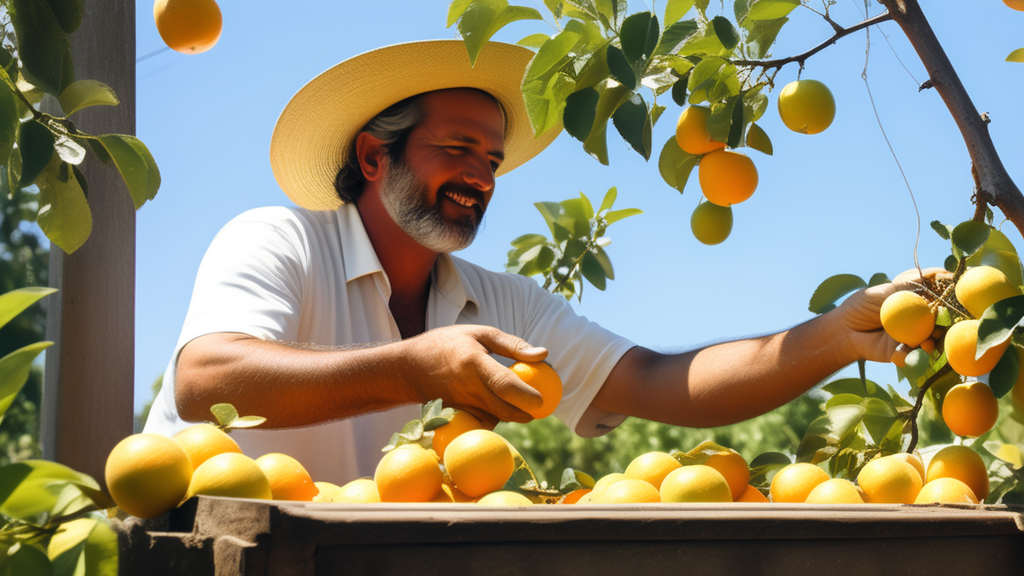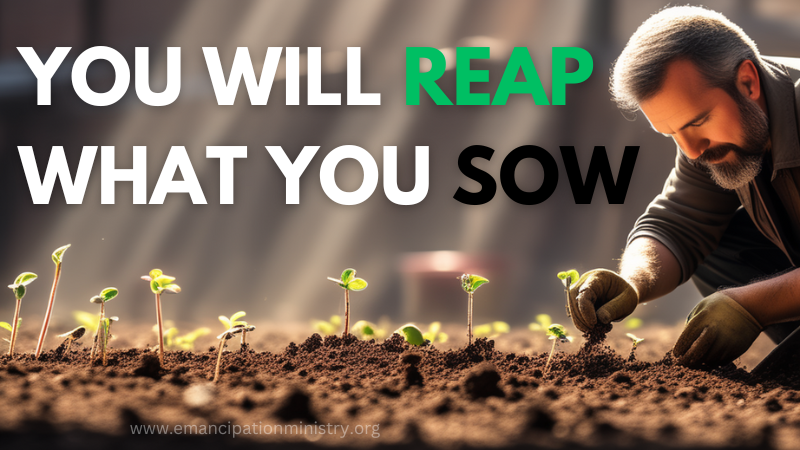Contents
Reap what you sow scripture
The proverb “reap what you sow” has ancient wisdom that is rooted in biblical teachings rather than being limited to slang. In this blog article, we shall examine the biblical basis of this idea, consider its importance, comprehend the concept of sowing and reaping, and derive practical applications for it.
Understanding the Scriptural Foundation
-
- Galatians 6:7-9 (NIV): “Do not be deceived; God cannot be mocked. A man reaps what he sows. Whoever sows to please their flesh, from the flesh will reap destruction; whoever sows to please the Spirit, from the Spirit will reap eternal life.”
This text from Galatians highlights the relationship between our acts and the results we encounter, emphasising the idea of cause and effect.
The Process of Sowing and Reaping

-
- Sowing Seeds: The act of sowing involves intentional actions, decisions, and choices made in various aspects of life—relationships, work, and personal development.
-
- Time and Patience: Just as seeds take time to grow, the outcomes of our actions may not be immediate. Patience is crucial as we wait for the fruition of what has been sown.
-
- Harvest Time: Reaping is the culmination of the sowing process. The quality of the harvest is directly linked to the nature of the seeds sown.
Practical Application in Daily Life
-
- Positive Choices: Choosing kindness, integrity, and diligence in our interactions and endeavors lays the foundation for a positive harvest.
-
- Mindfulness: Being conscious of our actions and motivations allows us to sow seeds that align with our values and aspirations.
-
- Investing in Relationships: Nurturing healthy relationships involves sowing seeds of love, understanding, and forgiveness, fostering a positive and supportive network.
Cultivating a Spiritual Harvest

-
- Sowing to please the Spirit: Aligning our actions with spiritual principles and values ensures a harvest that transcends earthly gains, leading to spiritual growth and fulfillment.
-
- Repentance and Restoration: Recognizing past mistakes provides an opportunity for repentance and a chance to sow seeds of transformation for a brighter future.
Biblical Examples of Sowing and Reaping
-
- David and Bathsheba (2 Samuel 11–12): David’s actions had consequences, illustrating the principle of reaping what one sows.
-
- Joseph’s Integrity (Genesis 39): Joseph’s commitment to righteousness in Potiphar’s house led to a positive harvest, despite initial challenges.
Summary
The fundamental notion of “reap what you sow” is woven throughout biblical teachings. May we plant the seeds of righteousness, kindness, and goodness as we negotiate life’s complications. Accepting the idea of planting and reaping gives us the ability to accept responsibility for our deeds and mould a fulfilling future.

For further exploration of biblical principles related to sowing and reaping, consider visiting online resources like Bible Gateway and Got Questions. These platforms offer tools for studying various translations and provide commentaries for a deeper understanding of the rich biblical wisdom surrounding this timeless concept.
Always keep in mind that every decision you make and every seed you plant will eventually reap benefits as you forge through life’s fields. Accept the ability to intentionally mould your future by creating an environment that is supportive, kind, and growth-oriented. When difficulties do emerge, face them with fortitude and the understanding that your actions today will determine your actions tomorrow. Repose in the assurance that you can harvest happiness, contentment, and eternal importance if your heart is in line with righteousness and you follow spiritual precepts. Have faith in the process; the seeds you plant now could grow into a glorious and prosperous future. May your fields be fruitful, and may the harvest of your life be a testament to the wisdom of sowing with purpose and intention. (Reap what you sow.)

